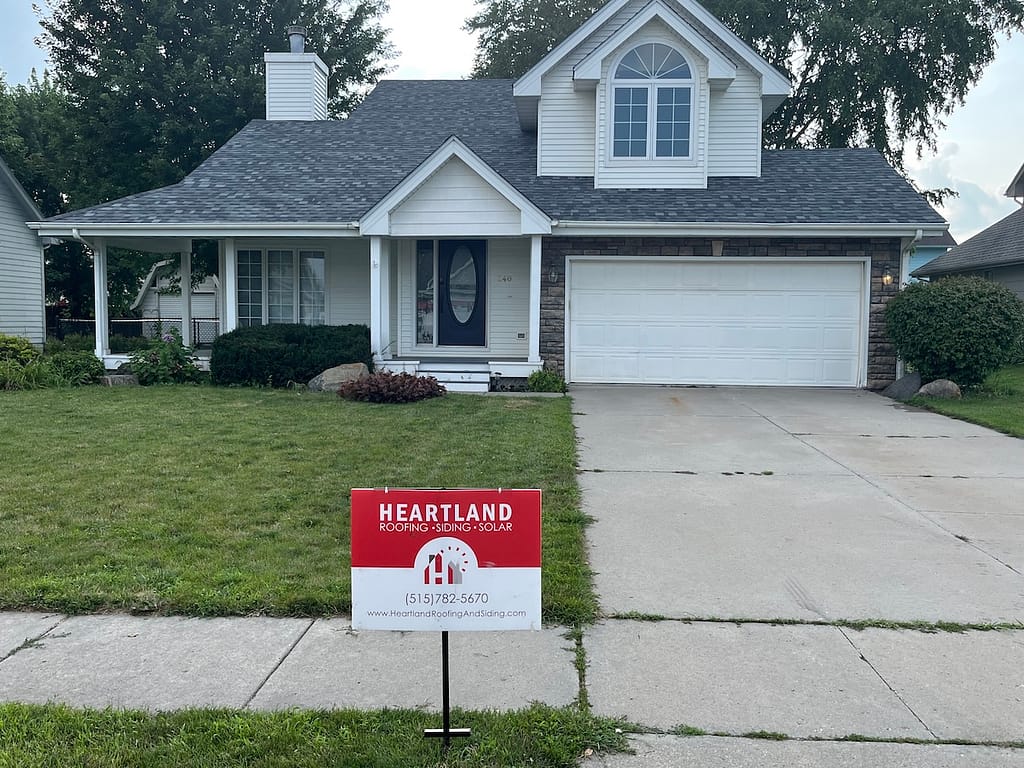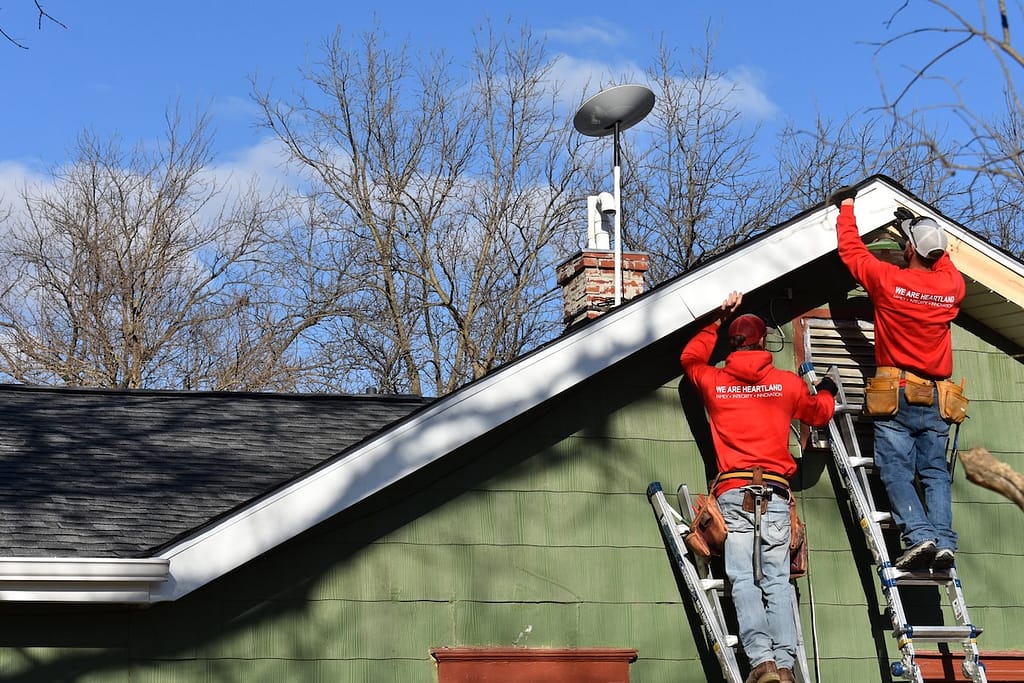
What Is A Roof Certification & Its Benefits?
September 16,2025
7 Minute Read
A roof certification is an official document provided by a licensed roofing contractor that verifies the condition and estimated lifespan of a roof, usually for the benefit of buyers, sellers, or lenders during a real estate transaction. It’s not the same as a roof inspection, though the two often go hand-in-hand.
- Certifications help buyers feel confident in a roof’s remaining life
- Lenders and insurers may require one before issuing a loan or policy
- Sellers can use it to strengthen their listing and avoid last-minute surprises
Let’s explore how roof certifications work, when you might need one, and the key benefits they offer to homeowners and real estate professionals.
📑 What Does a Roof Certification Include?
A roof certification isn’t just a quick glance at your shingles. It’s a comprehensive evaluation that results in a written report confirming that the roof is in good condition and free from major defects.
A typical certification includes:
- Inspection summary: Details of the roofing system’s current condition, materials, and any observed issues
- Estimated remaining life: Based on the material type, age, and overall wear
- Repair recommendations: If needed, these must be completed before the certification is issued
- Certification term: Most certifications are valid for 2–5 years and state that no major issues are expected during that time
- Photos and documentation: Visual evidence of the roof’s condition at the time of inspection
Only a qualified roofing contractor can issue a valid roof certification, and it’s usually offered after completing a detailed inspection and any necessary repairs. This vital qualification underscores why choosing your partner carefully is the most important decision in your roofing project; you must know how to choose a roofer who holds the correct credentials.

🏠 When Is a Roof Certification Needed?
Roof certifications are most commonly requested during real estate transactions, but there are other situations where they provide value.
Buying a Home
If you’re buying a home and the roof’s condition is unclear, or if the seller hasn’t provided recent documentation, a roof certification gives you peace of mind. It tells you how much life the roof has left and whether you’re likely to face a roof replacement shortly after closing.
Selling a Home
Sellers can use a roof certification as a selling point in competitive markets. It shows potential buyers that the roof is in good shape and not hiding surprise repairs. Some sellers obtain a certification preemptively to avoid delays during negotiations or escrow.
Refinancing or Home Loans
Lenders sometimes require a roof certification before approving a home loan or refinance, especially if the roof is older or the property is in a storm-prone area. This helps them confirm the asset is structurally sound.
Insurance Purposes
Homeowners insurance providers may also ask for a roof certification before issuing or renewing a policy. It helps them assess risk and determine eligibility or premium rates, especially if the roof is nearing the end of its typical lifespan.
👉 Roof Certification vs. Roof Inspection
Though closely related, these two services serve different purposes and offer different outcomes.
- Roof inspection: A visual evaluation of your roof’s current condition. You’ll get a report with findings and suggestions, but no formal documentation about remaining lifespan or future performance.
- Roof certification: A more detailed service that includes an inspection, mandatory repairs (if needed), and an official document that certifies the roof’s expected performance for a set period.
In short, all roof certifications include an inspection, but not all inspections lead to a certification.

✅ 5 Benefits of Getting a Roof Certification
A roof certification can offer peace of mind, financial leverage, and even legal protection, especially in real estate transactions. Here are five key benefits of getting one:
- Increases Buyer Confidence: Buyers feel more secure when a third party verifies the roof’s condition, helping reduce hesitation or second-guessing during negotiations.
- Reduces Deal Delays: Many real estate transactions stall or fall through due to roofing issues. A roof certification can speed up the closing process by eliminating uncertainty.
- Provides Legal Documentation: Should disputes arise post-sale, a roof certification serves as official documentation of the roof’s condition at the time of purchase.
- Can Help Secure Financing or Insurance: Some lenders and insurers won’t move forward without confirmation of a functional roof. A certification provides the documentation they need to proceed.
- Identifies Issues Early: Even if no sale is involved, a certification process can catch small problems before they evolve into costly repairs.
⏰ How Long Does a Roof Certification Last?
Most roof certifications are valid for 2 to 5 years, depending on the roofing material, its current condition, and local guidelines. Some roofing contractors may offer different terms depending on how recently the roof was replaced or repaired.
For example:
- Asphalt shingle roofs in good condition might qualify for a 2–3 year certification
- Metal or tile roofs, if newer, might receive a 5-year certification
- Older roofs may only be certified after repairs and for shorter terms
The certification typically includes a clear expiration date and outlines whether the roof is expected to remain leak-free during that period under normal weather conditions.
🛠️ What Happens If Repairs Are Needed First?
If your roof has missing shingles, flashing issues, or soft spots, the roofing contractor may require repairs before issuing a certification. The good news is these repairs are usually minor and far less costly than a full replacement.
Common required fixes include:
- Replacing missing or broken shingles
- Re-sealing flashing or vents
- Repairing minor leaks or water-damaged decking
- Cleaning debris or moss buildup
Once the necessary repairs are made, the roof can then be certified. In many cases, the contractor who completes the inspection can handle repairs on the same day.

✅ Do Roof Certifications Guarantee Anything?
While a roof certification provides a professional opinion on your roof’s current condition, it is not a guarantee against all future issues. It does, however, protect both buyers and sellers by:
- Offering a clear assessment of expected roof performance
- Reducing the risk of unknown damage post-sale
- Providing documentation for insurance or lending institutions
Some roofing contractors may include warranty-like terms in the certification, such as committing to repair leaks that occur during the coverage period, but these terms vary by company. Always read the fine print.
💵 How Much Does a Roof Certification Cost?
The cost of a roof certification can vary depending on your location, the size of the home, and the type of roofing material. On average:
- Standard asphalt shingle roof: $150–$350
- Larger or complex roof systems: $400–$600+
- Add-on repairs: May increase the total price if required before certification
Many roofing companies offer roof certification as part of a bundled inspection service. Be sure to ask for a detailed quote that includes all possible steps, including inspection, certification, and repairs if needed.
🤝 Get Peace of Mind With Heartland
A roof certification offers clear, professional assurance that your roof is in good shape, whether you’re buying, selling, refinancing, or just want to stay ahead of potential problems. It’s a simple step that can prevent surprises, support your home’s value, and give you (or the next buyer) confidence in the roof over your head.
Contact Heartland today for a free estimate. We’re here to protect your home and your peace of mind.

Get Started Today!
From roofing to siding, Heartland Roofing is the team you need to take your home exterior to the next level. All you need to do is reach out! Fill out our contact form or give us a call to get the reliable help that you need.
4.7 rating
94% recommend
A+ rating